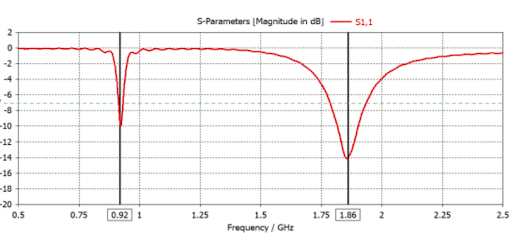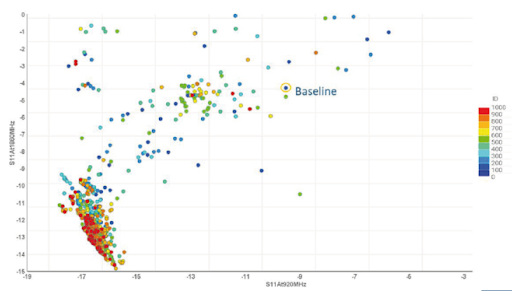Boost Signal and Enhance Antenna Reception Performance

- ESTECO Software Solution: modeFRONTIER
-
Benefits:Minimize signal return loss and tune the frequenciesModel the geometrical structure of the antenna in Catia V5Obtain the best signals of the perfectly tuned antenna just with 100 simulations performed in few hours
Guaranteeing effective signal transmission with modeFRONTIER
Antenna design relies on understanding of directivity, impedance matching, radiation efficiency, wave polarization, frequency range and orientation specifications. These imply complex electromagnetic simulation analysis which can be executed by employing computer-aided optimization techniques instead of opting for time-consuming trial and error approach.
"modeFRONTIER helped minimize signal return loss and tune the frequencies."
Challenge
The present study focuses on optimizing the shape parameters of a GSM dual band mobile phone antenna to guarantee effective transmission and reception while reducing the loss of power in the signal returned at specific frequencies. The optimization case requires the satisfaction of multiple criteria at the same time. It is necessary both to minimize the return loss amplitude of the signal and the difference of the tuning frequencies at 920 and 1860Mhz.
Solution
The geometrical structure of the antenna was modeled in Catia V5 by setting four parameters (cut position, cut width, scale ratio and antenna thickness). Then, the model was imported in CST Microwave Studio to perform accurate analysis of high frequency range. modeFRONTIER has been used to automate the entire process by integrating the CAD model in the workflow and running electromagnetic simulations. The optimization task was driven by the pilOPT algorithm which evaluated different antenna design configurations with the purpose of minimizing signal return loss and tuning the frequencies.

Benefits
pilOPT algorithm reached optimum solutions after few design simulations. The execution of the algorithm in autonomous mode allowed to obtain the best signals of the perfectly tuned antenna just with 100 simulations performed in few hours. This methodology may be extended to any component of an electronic system (including geometrical, material and operating parameters ).


Pareto frontier (return loss signal at 920 MhZ vs 1860 MhZ).


